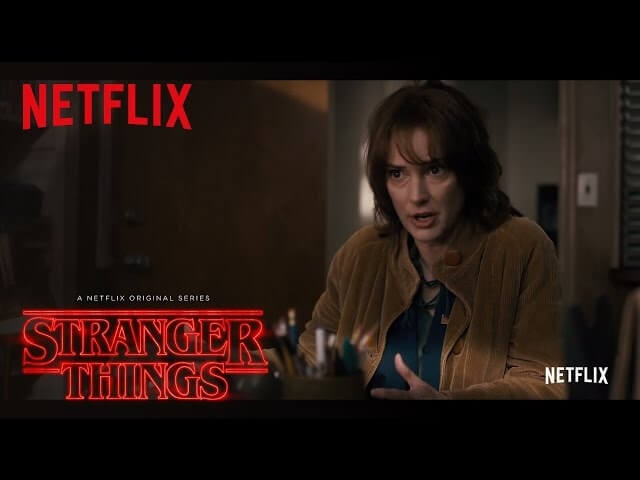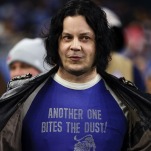Winona Ryder and Millie Bobby Brown discuss Stranger Things’ nostalgic appeal

Netflix staged one of the most anticipated events of this summer’s Television Critics Association press tour: A panel on Stranger Things, the throwback thriller that channels elements of 1980s horror and science-fiction cinema to depict the mysterious happenings in and around a small Midwestern town in 1983.
Two of the most noteworthy actors in a series full of them are a well-known face and a new one: Winona Ryder as Joyce Byers, whose son vanishes in the series’ first episode, and Millie Bobby Brown as Eleven, a 12-year-old with an enigmatic past and supernatural abilities. At the TCA, The A.V. Club participated in a roundtable discussion with Ryder and Brown to discuss various aspects of Stranger Things. Ryder started out by discussing her character:
Winona Ryder: I think that my character reacted completely appropriately to that situation, which was incredibly both unimaginable in terms of the grief, but also completely bizarre in terms of what was happening. I can’t imagine what else she would do, or what any parent would do.
Millie Bobby Brown: It was very believable. With some projects, you look, and you’re like, “How can I make this so believable?” And especially with my character, and Winona’s, we are very emotional. But not only do we cry, we have to tell it with our face. So there’s this storyline of Joyce Byers, who has lost her son for a long time now. It’s pretty amazing how we sort of come together and collaborate to make such an amazing project. It really isn’t to do with crying, it’s more just with the emotion itself. Trying to be happy, and trying to get through things, but really deep inside we’re really broken.
WR: I think one of the best pieces of direction that I ever got was when I was about your age [to Brown]. I was working with Jason Robards and Dan Petrie Sr. [in 1987’s Square Dance], and I had to cry in a scene, and he came and he said, “Don’t cry. Whatever you do, don’t cry.” And I was like [Cries.] immediately. So it’s almost this weird thing of trying not to, I don’t know.
MBB: It’s quite funny, actually, because I had done Intruders, and I had a scene where I had to cry after a traumatic scene. So it was crazy, because Glen Morgan, who wrote The X-Files, came up to me and was like, “Do you have a dog? Well, that’s just dropped down dead right now.” [Ryder throws up her hands.] And he’s like, “How do you feel about that?” And I’m just like, “Let’s just roll!” And we’re rolling.
When I used to go off set [on Stranger Things], and I would come back on, and I would see Winona filming, it was heartbreaking. Even my mom was like, “I can’t even watch it, it’s horrible, really, isn’t it? Just the reality of things.”
WR: I was her [Brown’s] age that year [that the series is set in], in 1983. Because I was born in ’71. That was a really sort of big year for me, because I was learning a lot about what was happening in the world, and getting more involved. I joined Amnesty International—I joined the local chapter and licked envelopes. I guess my parents must have maybe sheltered me a bit before then, and then sort of thought, okay, she’s ready. Because I was very curious, I’d always read the paper with them. And then I started wanting to read it on my own. So I remember going on marches and sitting on railroad tracks when we were bombing the contras. I remember it being a sort of pivotal year for me, in terms of what I started to really care about. It was also during the nuclear freeze. Things just seemed very real.





![Rob Reiner's son booked for murder amid homicide investigation [Updated]](https://img.pastemagazine.com/wp-content/avuploads/2025/12/15131025/MixCollage-15-Dec-2025-01-10-PM-9121.jpg)

























![HBO teases new Euphoria, Larry David, and much more in 2026 sizzle reel [Updated]](https://img.pastemagazine.com/wp-content/avuploads/2025/12/12100344/MixCollage-12-Dec-2025-09-56-AM-9137.jpg)








